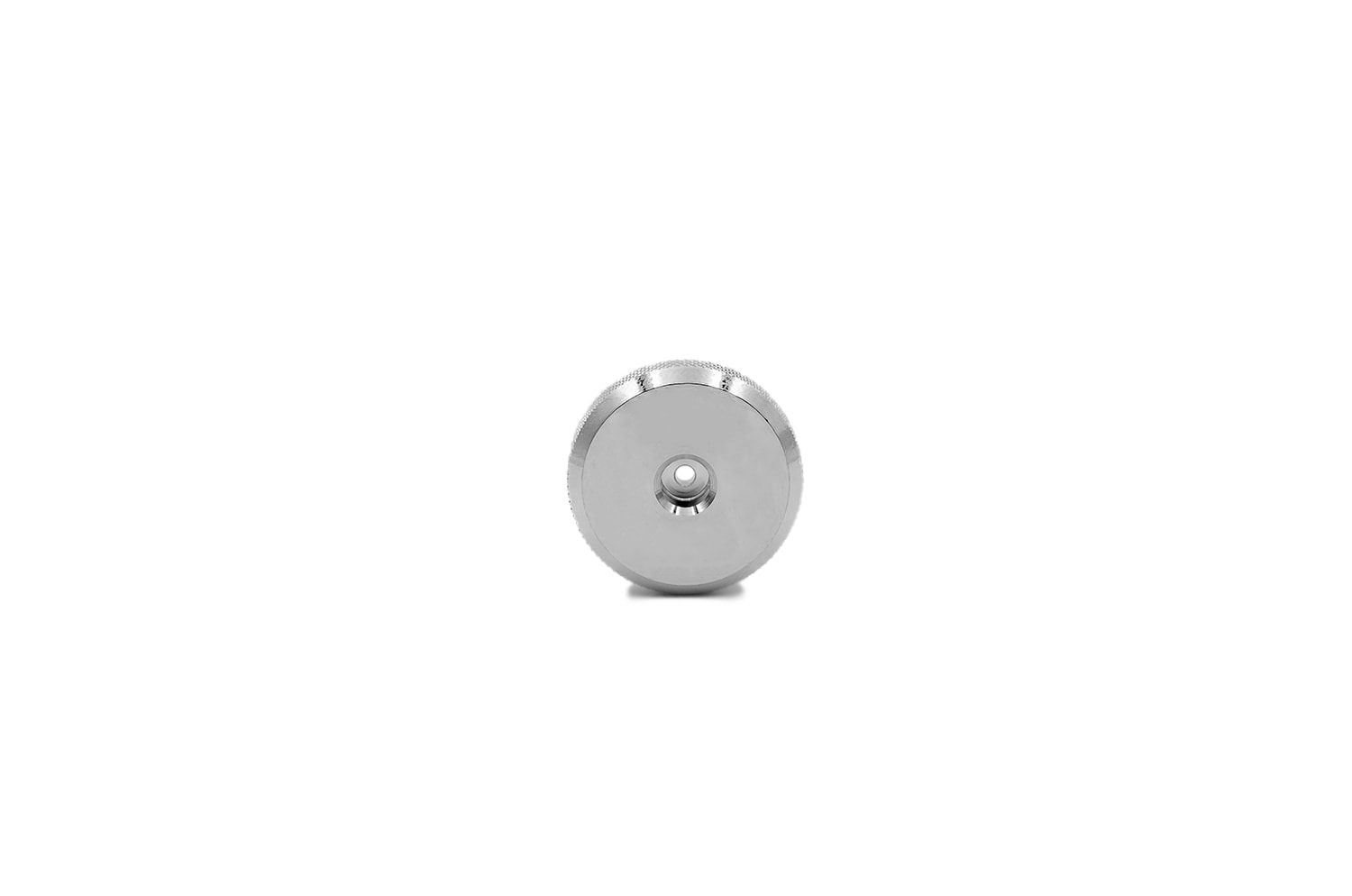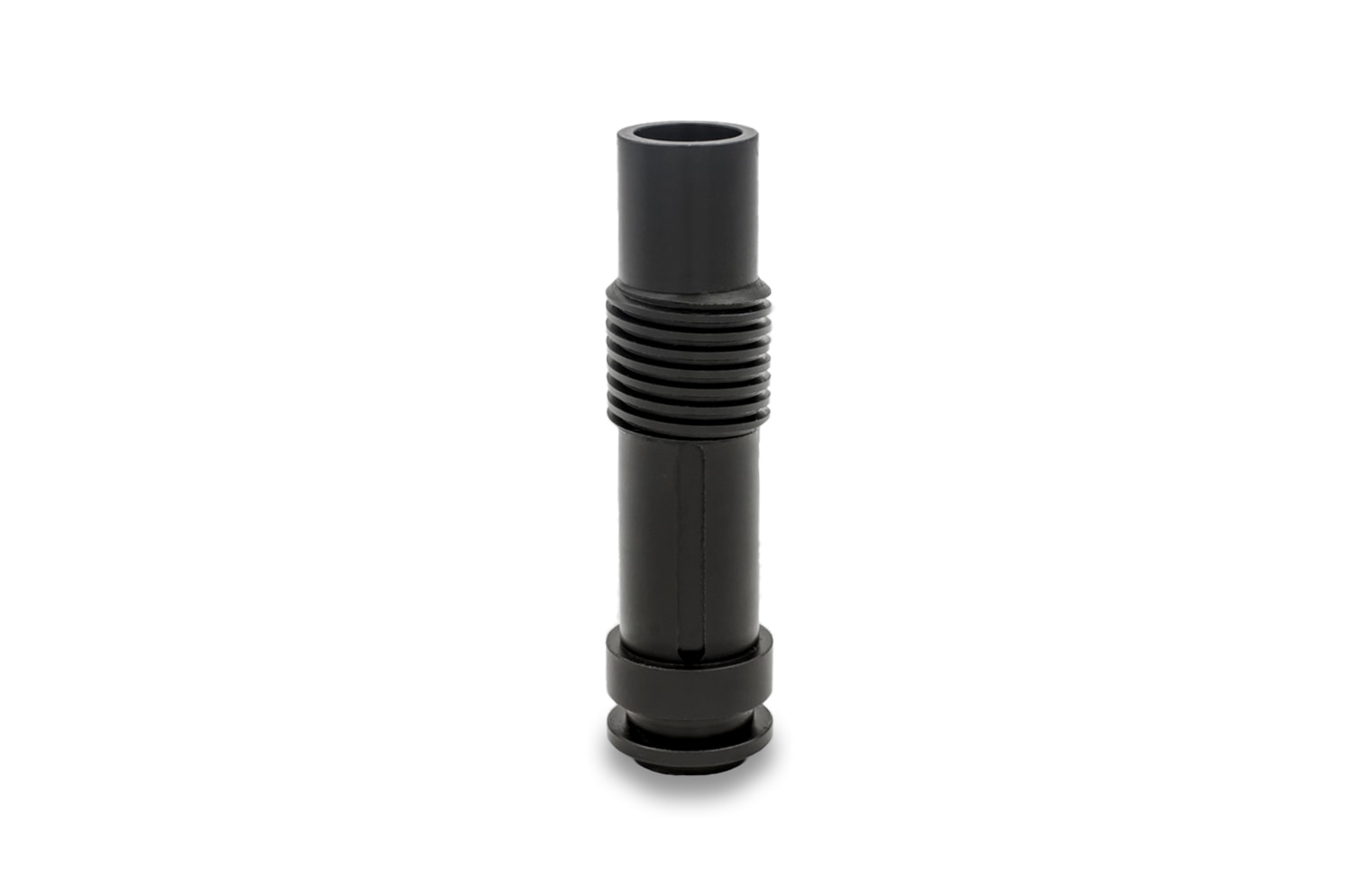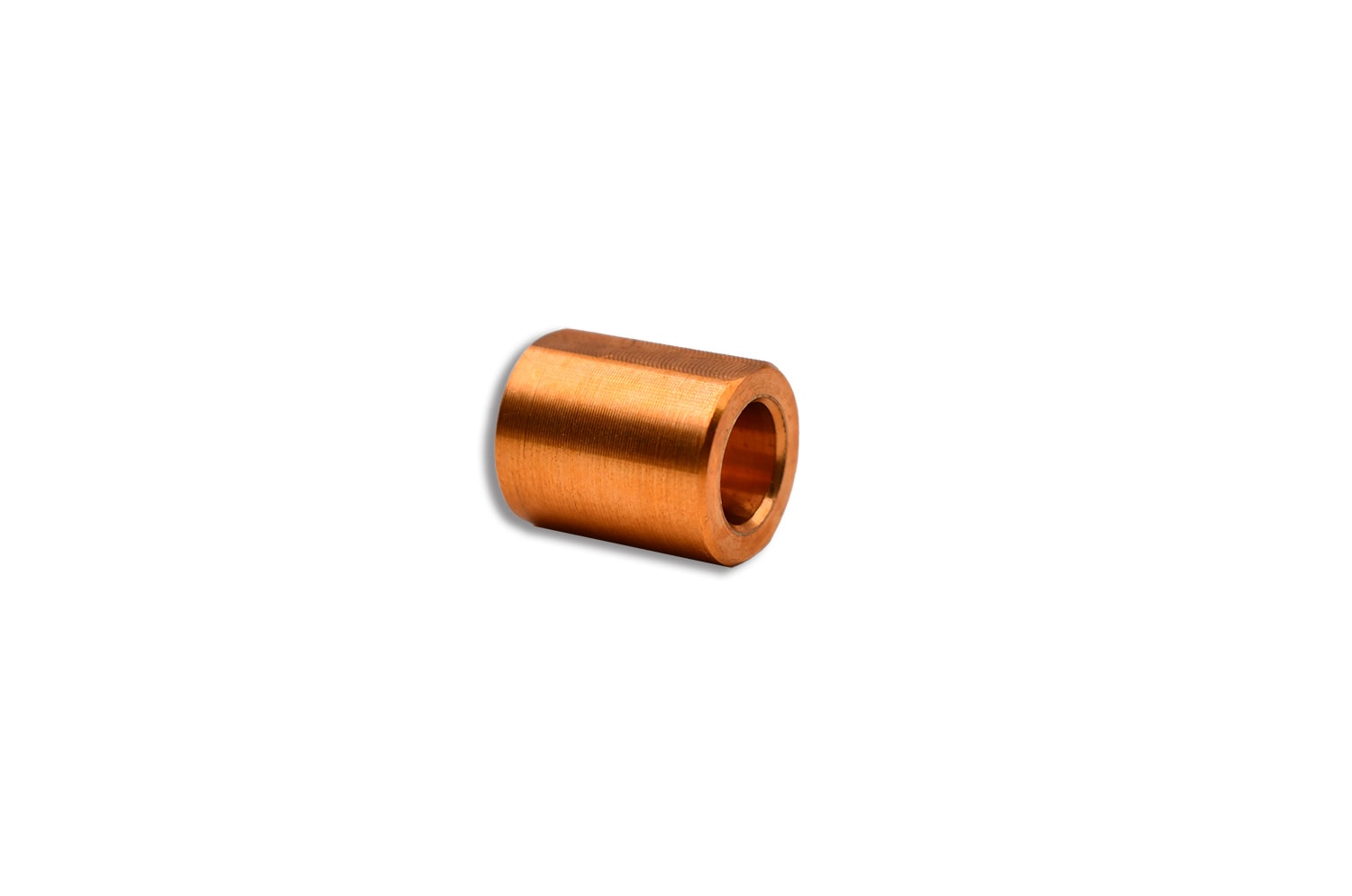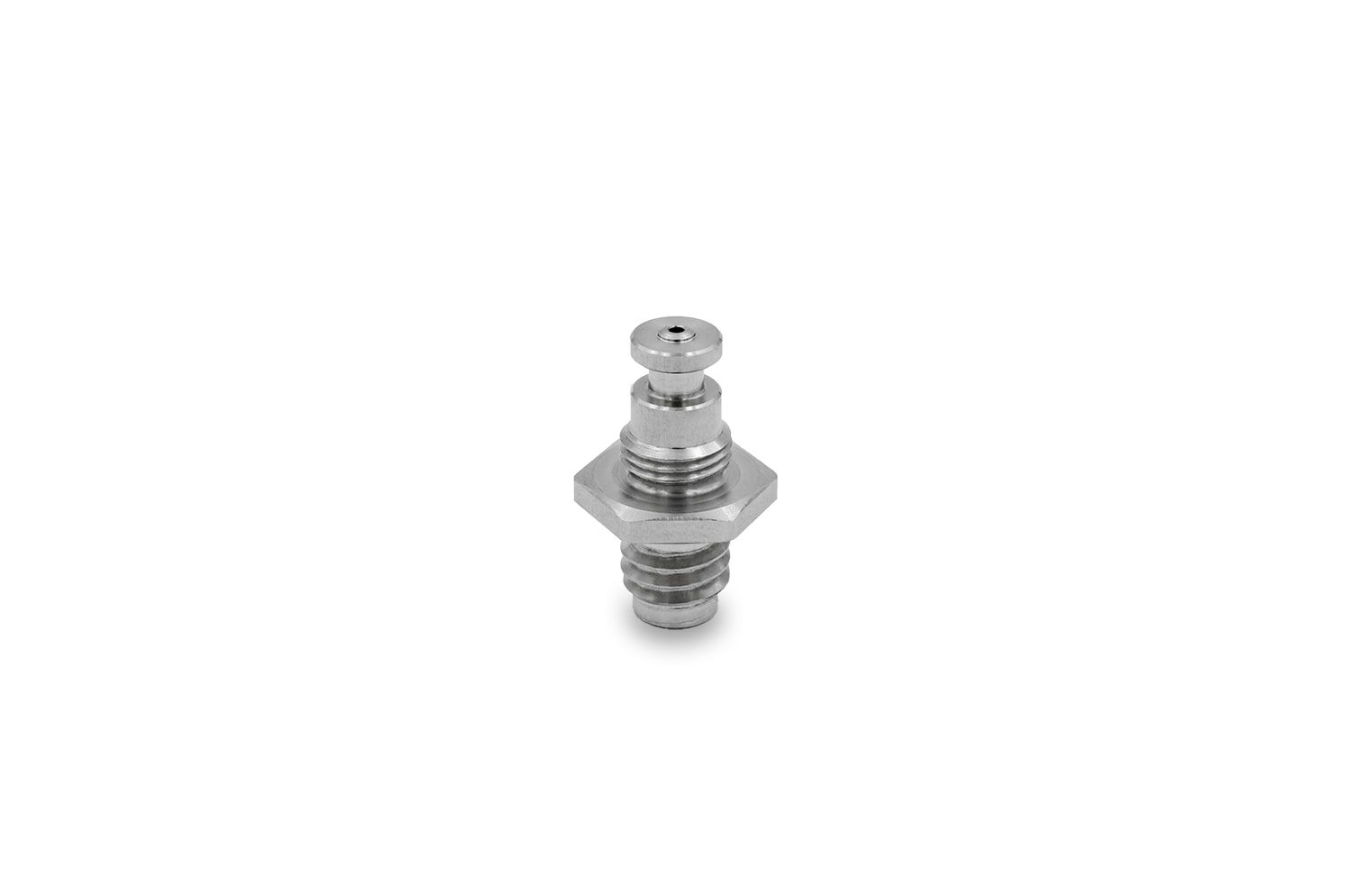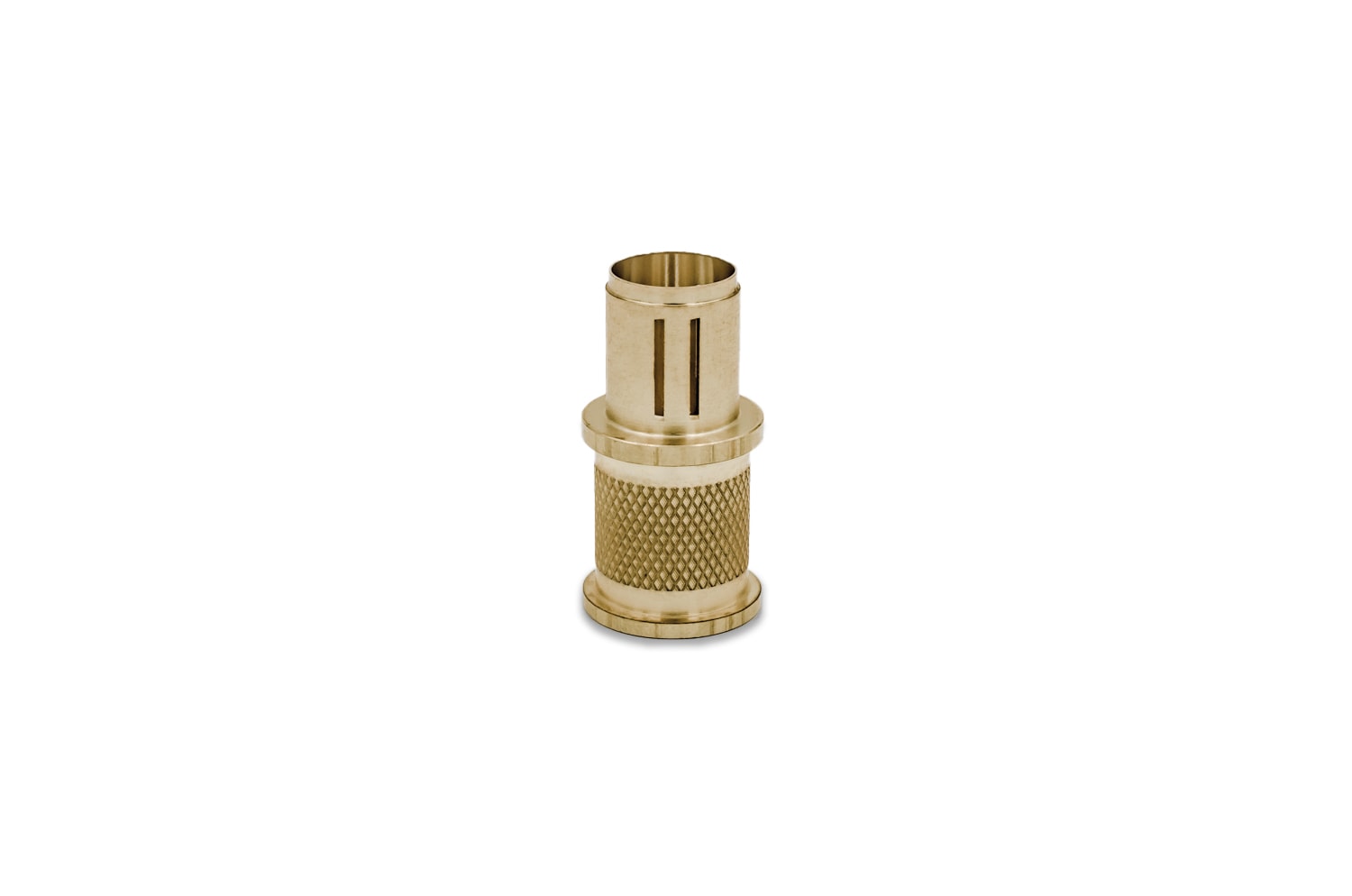Materials for Turned Components
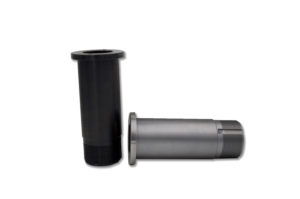 Various metals and plastics will have different properties that affect the functionality of the end product, but those same properties can also impact how they respond to different machining and manufacturing processes. Machining techniques (like turning and milling) must use different tools and varying degrees of force to cut away excess material from a workpiece. In this guide, you’ll learn the attributes and advantages of an assortment of materials and how they react to machining and finishing processes.
Various metals and plastics will have different properties that affect the functionality of the end product, but those same properties can also impact how they respond to different machining and manufacturing processes. Machining techniques (like turning and milling) must use different tools and varying degrees of force to cut away excess material from a workpiece. In this guide, you’ll learn the attributes and advantages of an assortment of materials and how they react to machining and finishing processes.
Metal CNC Swiss Machining
Precision machining processes frequently rely on metal alloys to create products. It’s essential to select the right metal based on the needed characteristics in the finished piece, the budget of the project, and how well the metal responds to different precision machining techniques. Some of the most commonly used types of metals include:
| Aluminum. Aluminum is lightweight and easy to machine. This makes it an ideal choice for complex parts that must meet tight tolerances and hold detailed designs. Specialty aluminum alloys, such as Aluminum 2024 or Aluminum 7075, are built with higher strength characteristics that allow them to withstand pressure, physical impact, and cracking risks. Aluminum is an excellent choice when corrosion resistance is a key requirement. Common grades of aluminum used in CNC Swiss Machining include: 2011, 2017-T4, 2024, 6061-T6, 7075-T651. | |
| Brass. Brass is a highly cost-effective choice for machined components that don’t require a high degree of strength. The metal resists both corrosion and wear, making it ideal for long-term use. It also has positive characteristics that make it well-suited to machining, such as its responsiveness to knurling, threading, and free machining. Brass produces a clean finish and can be used to create highly accurate and cost effective parts. | |
| Carbon steel. Higher carbon levels in this type of steel give it a greater degree of hardness and strength. Carbon steel can be machined, heat treated, and finished, though machinability decreases as the hardness level of the steel grade increases. After production, carbon steel resists damage, stays dimensionally stable, and doesn’t lose its characteristics under exposure to high temperatures. The appropriate carbon steel may be selected for a project based on the percentage of carbon present in the alloy. Common carbon steel grades used in CNC Swiss Machining include: 1018, 117, 1141, 1144, Stressproof, 12L14, 1215.’ More about the classes of steel used in precision machining can be found here. | |
| Copper. Copper is an expensive, but highly versatile metal. It is electrically conductive, resists corrosion, and is nonmagnetic. Copper alloys have been formulated offering varying degrees of additional strength. While the metal responds well to precision machining processes, it doesn’t create as precise a finished product is as other metal options like aluminum. Copper is an excellent choice for electric parts and hardware components. | |
| Steel alloy. Steel is itself an alloy of iron and carbon, but alloy steel typically refers to a steel that has been at least 5% alloyed with some other metal or metals to give it specific properties. The addition of alloying elements such as manganese, tungsten, nickel, vanadium, or other common alloy materials typically increases the machinability of the steel. The greater the percentage of nickel in the alloy, the more difficult it is to machine. Common steel alloys for CNC Swiss machining include: 4130, 4140, 4340, 8620, and 9310. More about the different classes of steel used in precision machining can be found here. | |
| Stainless steel. Stainless steel is created by adding varying levels of chromium to the alloy. As one of the most popular steel alloys for consumer and commercial and medical products, it retains its durability, has an enhanced resistance to corrosion, and offers an attractive aesthetic for components that will be visible on the final product (such as knobs, etc.). Stainless steel is hard and strong, which also make the metal more challenging for machining processes. Some stainless steels add sulfur to improve its machinability. Common stainless steel grades for CNC Swiss Machining include: 13-8, 15-5, 303, 303SE, 304, 316, 321, 410, 416, 420, 440C Nitronic 60, and Monel. More about the different classes of steel used in precision machining can be found here. |
Plastic Machining
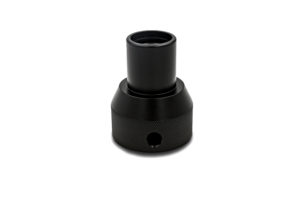 Some plastic materials are also compatible with the same machining processes as metals, such as milling or turning. As with metals, plastic polymers have different properties that contribute to their machinability, attributes, and prices. Plastics are generally categorized into two groups:
Some plastic materials are also compatible with the same machining processes as metals, such as milling or turning. As with metals, plastic polymers have different properties that contribute to their machinability, attributes, and prices. Plastics are generally categorized into two groups:
Thermoplastics
Thermoplastic materials can be heated, cooled, and reheated again without losing their basic properties. This means that they can be reformed again and again without undergoing permanent chemical changes. This makes thermoplastics ideal for machining processes, as waste material and mistakes can usually be recycled and reused to drive down costs.
There are a wide variety of thermoplastic options available. Polyetherimide, for example, has an extremely high dielectric strength and is frequently used in precision aerospace components. Polyethylene, polypropylene, and polyvinyl chloride (PVC) are popular thermoplastics used to create hundreds of different consumer, commercial, and industrial parts and products.
Common thermoplastics used in CNC Swiss Machining include:
Thermosets
Thermoset plastics undergo a chemical change during the first set of heating and cooling processes. They cannot be remelted or softened for further refinement or even recycling. They are also very brittle once they set, which can make machining extremely difficult. As such, thermoset plastics are generally not used in CNC Swiss machining applications.
Metal vs. Plastic for Precision Turned Components
Metals or plastics can be excellent choices for precision turned products. They each have different advantages that can make the machining process easier, but ultimately the choice of material will depend heavily on the design and intended end use.
Additionally, metal parts can undergo different finishing processes to impart the metal with specific physical characteristics, provide surface-level protection, or smooth the surface. Popular finishing processes for turned metal parts include:
Some of the key advantages of plastic include:
- Lightweight. Plastic is often used over metal as a means to reduce the weight of a part.
- Speed. End to end, the supply chain process of working with plastics is faster. Manufacturers can easily produce even custom plastic formulas with greater speed than the process of refining and fabricating metal workpieces such as sheets or blanks.
- Cost-effectiveness. Plastic parts tend to be more cost-effective. This is due to several different factors, such as the cost of the raw materials, labor, and transportation.
- Simplicity. Plastics are much more malleable than metals. They’re easy to form, especially into fluid or complex designs.
The key advantages of metal for precision turning processes include:
- Strength. Generally speaking, metals offer higher strength and better strength-to-weight ratios than most plastics.
- Durability. Metal is typically more dependable in extreme or harsh environments and will be more resilient under stress.
- High temperatures. Most metals will have a higher melting point than a comparable plastic material, making them ideal for higher temperature applications.
Common applications for thermoplastic precision machining include:
- Medical components
- Bearings
- Bushings
- Insulators
Some common applications of metal machining include:
- Aerospace and military components
- Electrical components
- Fasteners
- Gears
- Housings
- Shafts
- Hydraulic components
Partner with the Experts at Pioneer
At Pioneer Service, Inc., we specialize in manufacturing custom-turned precision parts. Our facility includes state of the art CNC Swiss machines to produce components with complex geometries and tight tolerances for industries ranging from aerospace to medical. Our company is ISO 9001:2015 and AS9100D certified. Contact us today to see how we can support your project.



